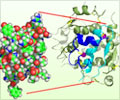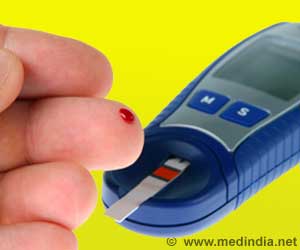
- Diabetes is a chronic metabolic disorder characterized by high blood sugar levels.
- Daily Insulin injections are important for control of blood sugar in diabetics
- A research team from McCourt/Mielnicki Lab have discovered a newer technique for painless diabetic treatment.
- The novel method involves the use of Cholestosomes for encapsulating insulin.
- Cholestosomes are neutral lipid molecules which packs insulin and delivers it in the bloodstream.
Oral insulin instead of injection has been researched for many years. The problem with oral insulin is that it degrades in the gastrointestinal tract and this results in inadequate blood levels of insulin.
A major advancement has taken place by a team from Niagara University. They have been able to package the insulin to stops its degradation. Insulin when taken orally does not match with the acidic environment of the stomach making it ineffective therefore a protective shield made of polymer coating is required to protect the insulin from stomach acid and is tested for clinical trials.
Mary McCourt, Ph.D., leader of the research team said that “We have developed a new technology called a CholestosomeTM’’
“CholestosomeTM is a neutral, lipid-based particle that is capable of doing some very interesting thing.” she added.
The cholestosome are naturally occuring lipid molecules which are considered to be building blocks of fat and differ from liposomes that serve as lipid based drug carrier.
Computer modelling depicts that neutral particles are formed by lipids when they are arranged in the form of spheres to resist the attack of stomach acids. Drugs are fed into the neutral particles which do not degrade in the stomach and when it reaches the intestines it is absorbed. These vesicles then pass through the bloodstream where the cells break them to release insulin.
Factors like optimal pH and ionic strength are considered while packing insulin into the drug containing solution. A number of multiple molecules with vesicles were tested on animals. Results on treating rats with cholestotomes containing insulin proved to show that maximum amount of insulin had reached the bloodstream.
About Diabetes and Insulin:
Diabetes is a metabolic disease characterized by high blood glucose levels. About 415 million people in the world have diabetes. Out of which about 69.1 million cases are reported from India in 2015. Common symptoms of diabetes include frequent urination, excessive thirst, fatigue and weight loss.
There are two main types of diabetes which are primarily classified based on insulin –
Type 1 diabetes - insufficiency of pancreas to produce insulin.
Type 2 diabetes - due to insulin resistance.
Insulin is a peptide hormone produced by the beta cells of the Islets of Langerhans in the pancreas. It plays a major role in the metabolism of carbohydrates, fats and proteins by absorbing the blood glucose. Insulin is usually degraded in the gastrointestinal tract
Treatment for Diabetes/ Management for Diabetes:
Common treatment for diabetes involves the use of oral hypoglycemic drugs like metformin, glibenclamide, glimepiride and acarbose as they lower the blood sugar levels. However in some resistant cases, Insulin seems to be the effective treatment for diabetes. Insulin is most commonly given in the form of subcutaneous injections which are painful. They are preferably injected into the abdomen, thighs or in the fatty area of the arm.
There are various types of insulin which may be rapidly acting insulin, regular, intermediate or long acting insulin which is capable of lowering the blood glucose levels. However these injections may result in redness, itching or allergic reactions and swelling at the injection site. Other measures like following a healthy lifestyle, diet and proper exercises are necessary for managing diabetes.
The oral insulin capsules will help with better patient compliance as some patients do not like the injections and skip the dose.
References:
- Diabetes - (https://medlineplus.gov/diabetes.html)
- Diabetes in India - 2015 - (http://www.idf.org/membership/sea/india)















